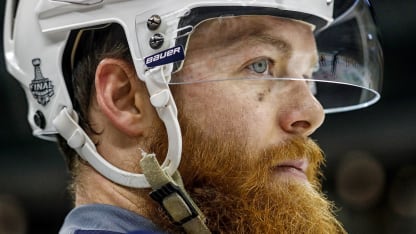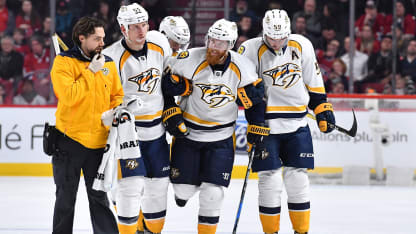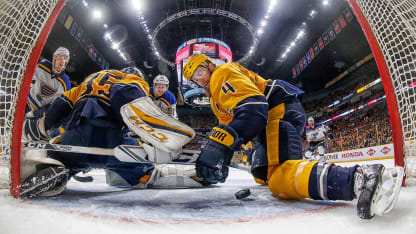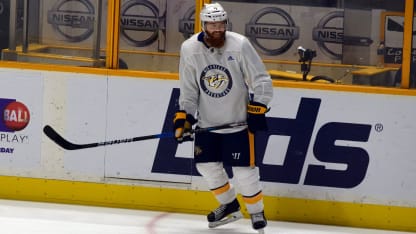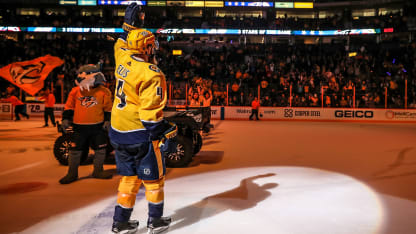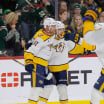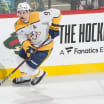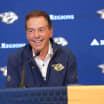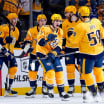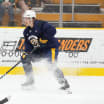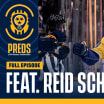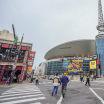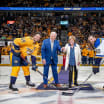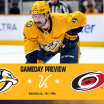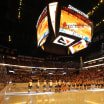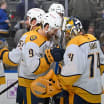As soon as our season ended last year, our goal for this year immediately became to get back to where we were, and this time, win the last two games. But compared to my teammates, my road back was going to be different.
After fighting through an injured knee for months, I had to have surgery. One kind of pain that had become my constant companion would come to an end, but another would begin. The timeline to play again was going to be six months or more. At first, it didn't seem so bad. Most of us were taking a few weeks off during the summer, so it took some time to sink in that I wasn't able to skate, let alone play hockey.
When training camp started in September, I was still having trouble walking around. It was the first week of the season that it hit me like a ton of bricks, though. My passion, my livelihood, what I feel I'm supposed to do every single day was now impossible. Everyone else was on the ice, while I was off to the side, relegated to watching.
That's the part that hurts the most. Let me be honest with you: This surgery, this recovery, the waiting, the rehab - it all sucks.
More than anything, the new routine of recovery is mentally exhausting. It's not like I was out a week or even two weeks. It's day after day, week after week, month after month of not being with the team and taking baby steps toward what was once routine and second-nature. Physically, it was frustrating, but mentally, it was even more challenging. But if I can offer some advice to anyone going through a similar process: stick with it.
There's light at the end of the tunnel. It's a really, really, really long tunnel, sure. And it's not fun going through what I did, but as it drags out, every day is just a little closer to the end of that tunnel. Just remember that you can't take what you care about the most for granted. You have to fight for your passion.
